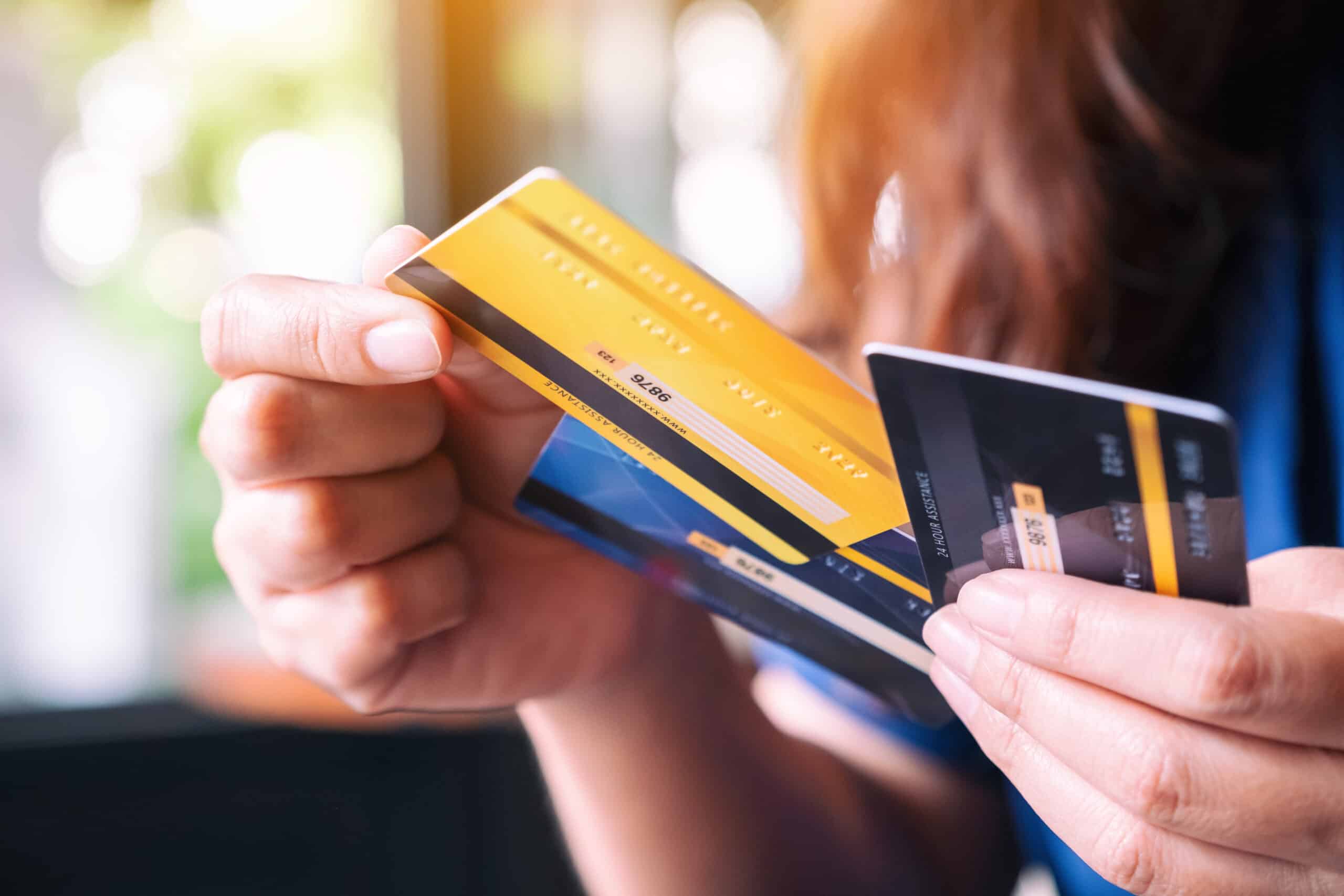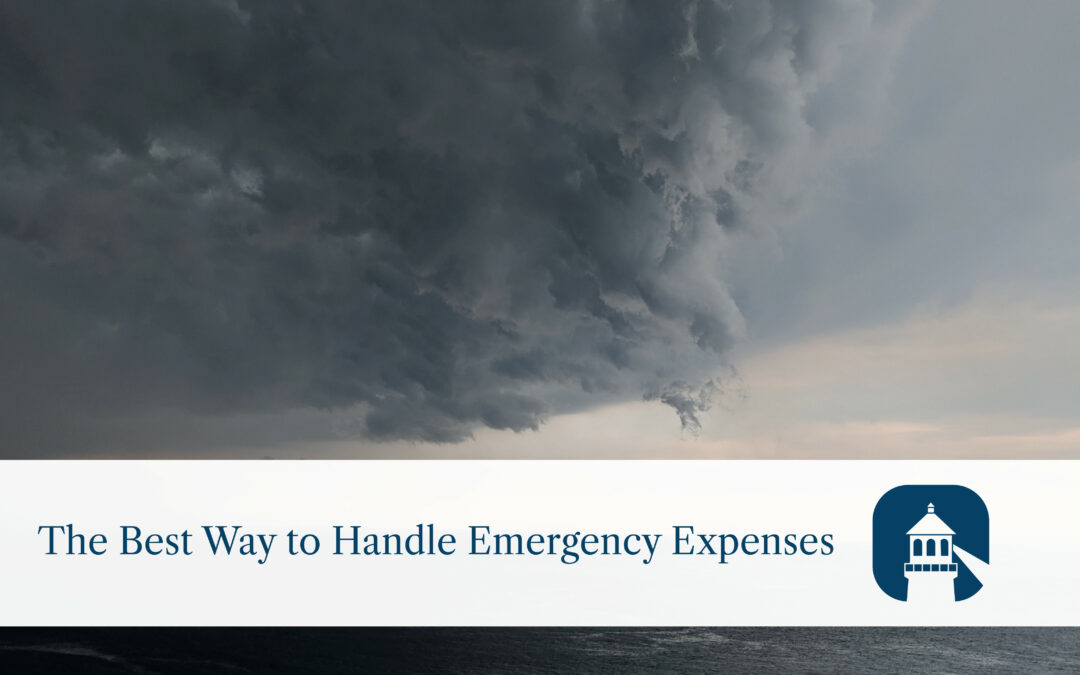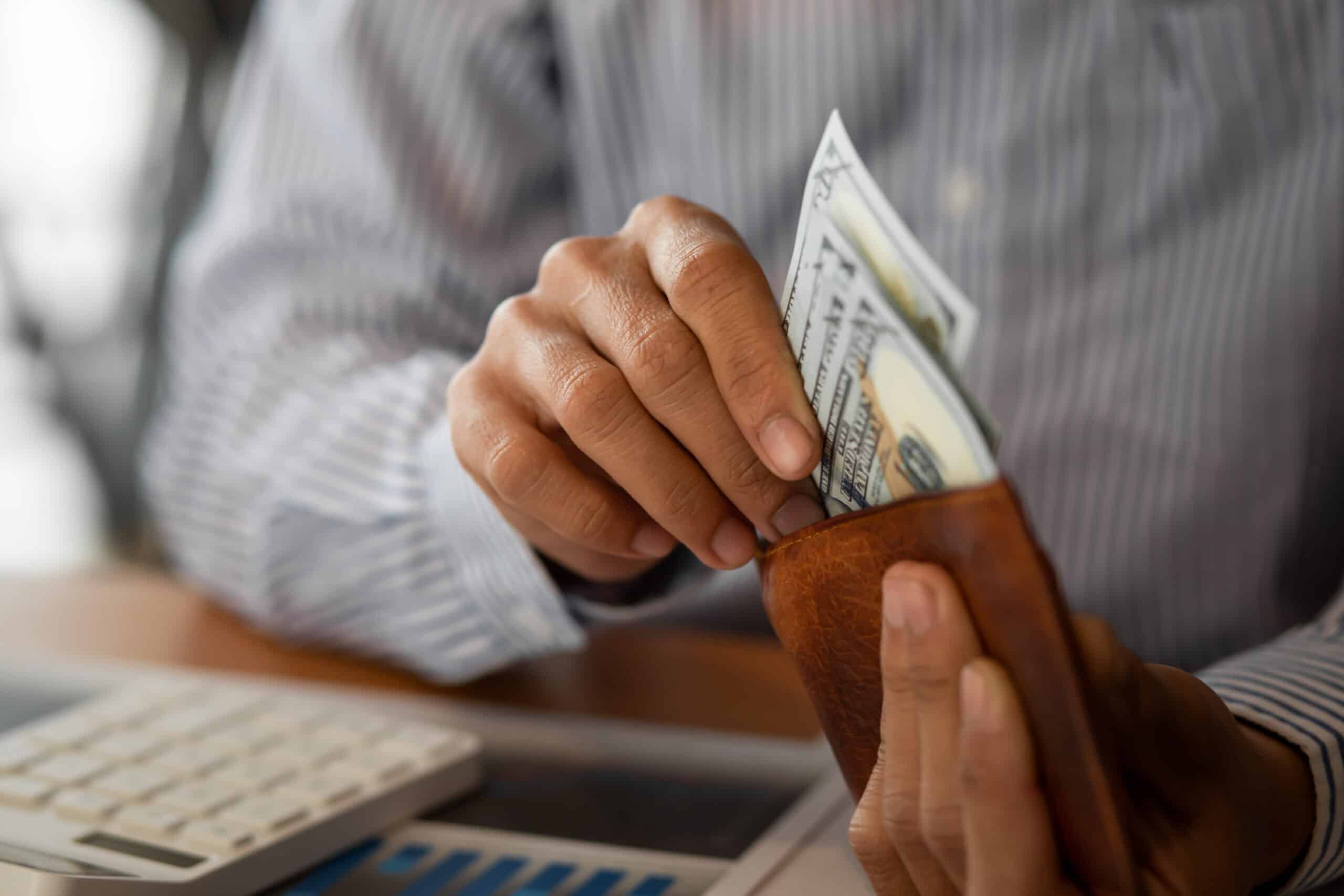It will happen to all of us at some point — carefully laid plans will fail and emergency expenses will crop up. Your AC malfunctions, your car breaks down, you get a large medical bill, or something unexpected happens that falls outside your monthly budget. What’s the best response?
It might be surprising to hear, but it’s not always best to pay in cash from your emergency fund. Sometimes, taking out a loan makes more sense. And in other cases, you may be able to delay the purchase for a little while and come up with a more affordable solution.
We’re not saying you should never use your emergency fund — that’s why it’s there. But emergency expenses aren’t always simple and straightforward. So it’s usually best to take a little time to explore your financial options. The more information you have, the easier it is to make a decision that aligns with your current financial situation and your future goals.
Do You Have an Emergency Fund?
As we said, covering an unexpected expense in cash isn’t always the right call. But it’s crucial to have that option to consider — and that means you need an emergency fund.
When you have money saved up, you can avoid some of that initial panic when something unplanned happens. Plus having an emergency fund gives you alternatives to getting a new loan or running up your credit card balance.
How much should your emergency fund be? Traditional financial advice says six months’ worth of living expenses. It’s a great goal, but not always realistic for everyone. We tell our clients to aim for three to six months of expenses. And if you’re just starting to contribute to an emergency fund, consider making an initial goal of saving $1,000.
It can be overwhelming to think about saving for multiple months of expenses, and a smaller intermediate goal can help you stay motivated and encouraged.
Consider Options Beyond Paying in Cash
Once you have your emergency fund, you should use it to cover any unexpected expenses, right? Not necessarily. Sometimes, it makes more sense to take out a loan than to pay in cash. Having an emergency fund is essential because it gives you the option to avoid debt. But before you write a check or swipe your debit card, it’s a good idea to think through all the options and determine which one’s best.
There’s More Than One Type of Loan
Should you take out a loan to cover an emergency? Maybe. It depends on the type of loan. Running up a high balance on a credit card isn’t the same as getting a personal loan from a bank or borrowing money from a family member.
In some cases, getting a loan may even be preferable to paying in cash — especially if you can use the loan to spread out the cost of the unexpected expense. For example, let’s say your AC breaks in the middle of July. It’s going to cost about $6,000 to replace the broken air conditioner, but the HVAC company offers short-term financing for a year at 0%.
In this case, it probably makes more sense to finance the cost of the new AC. You don’t have to take a big chunk out of your emergency fund, and you won’t lose money to interest if you pay the full balance before the promotional period ends. Yes, this approach technically means you’re taking out a loan, but the benefits probably outweigh the disadvantages. The main benefit is flexibility with your emergency fund and getting a low or zero rate loan that otherwise might not be available to you.

Don’t take this example as blanket advice to finance big purchases. Promotional financing isn’t always straightforward. Often, these deferred-interest loans come with a catch — if you don’t pay off the entire balance during the promotional period, you end up owing all the interest that accrued during that time, but it does give you the flexibility with your emergency fund.
But if you know you have the funds and discipline to repay the whole balance during the no-interest period, this type of loan is worth considering. It can be a good alternative to taking a lot of cash out of your emergency fund all at once.
Don’t Forget “Outside the Box” Options
Deferred-interest promotional loans aren’t the only option to avoid a big cash payment. In some cases, it might be worth taking out a 401(k) loan. If you have a substantial expense (like a serious home repair), it might make sense to take out a home equity line of credit. Compare all the options to determine which one offers the most benefits.
It’s also vital to analyze the expense itself to determine if there’s another solution. For example, if your AC breaks in September, would it be worth getting a couple of cheap fans to make it through the last few weeks of hot weather instead of replacing the unit right away? Doing so could allow you to save up money over the winter to cover the cost of a new AC without dipping into the emergency fund.
Likewise, if your car breaks down, run the numbers on repair vs. replacement. It’s not always cheaper to repair — sometimes it makes more sense to get a new car. If that’s what you decide, consider all the possible funding options. For example, you might be able to get a better deal and interest rate with a credit union loan for a new car than a dealership loan for a used car.

In some cases, you may just have to use credit cards to cover the cost of an unplanned expense. We’d encourage you to think of this as a last resort, but sometimes it’s the only option. Using credit cards isn’t the end of the world — and it doesn’t mean you’ll never recover. Just prioritize paying off the balance and building up your emergency fund again.
Make the Best Choice for Your Circumstances and Goals
Emergency expenses are never fun, but they don’t have to be life-changing disasters either. Having an emergency fund makes it easier to deal with these unexpected issues. Even if you don’t end up covering the entire cost in cash, you may be able to buy yourself time or get a more favorable loan if you have access to cash in a savings account.
Before you decide to pay for the entire amount from your emergency fund, however, take the time to evaluate all the options — including loans! Sometimes, it makes more sense to take out a loan, especially if you can do so with 0% or deferred interest. And if you end up having to use a credit card, just pay down the balance as soon as you can.
One of the best things about having an emergency fund is that it can allow you to stick with your budget even when the unexpected happens. Don’t have a budget yet? Now’s the perfect time to start! Having a clear budget also makes it easier to build up your emergency fund, because you can see exactly how much you can save each month.
If you aren’t sure where to start with your budget, Guiding Wealth can help. Our team of expert financial planners can help you assess your current situation and financial goals — including a strong emergency fund. Then, we’ll help you make a plan to get there. To get started, schedule a consultation online or call 214-810-3835.


